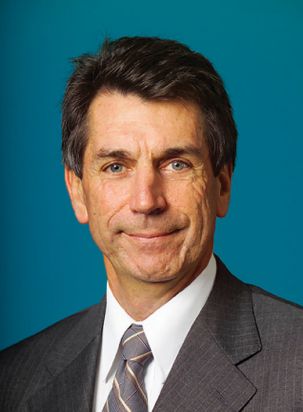A case by case, fact by fact approach is required when considering section 9 of the Official Information Act 1982, Chief Ombudsman Peter Boshier says.
Section 9 sets out good reasons for withholding official information unless those reasons are outweighed by other considerations, in the public interest.
In an address to the Lawyers in Government Conference in Wellington on 19 August 2016, Judge Boshier said he thought it important that his Office outlined its thinking from time to time, on the correct approach it believes should be taken in certain situations. He looked at three aspects to section 9.

Chief Ombudsman Peter Boshier.
Confidentiality of advice tendered to Ministers
The first, the confidentiality of advice tendered to Ministers (section 9(2)(f)(iv)), was a quite different situation to the "free and frank expression of opinions" which followed straight on.
The focus of the section was the maintenance of the constitutional convention which protects the confidentiality of advice tendered by ministers of the Crown and officials.
"Generally, where the section applies, only advice is protected, rather than the options being considered. Moreoever the section 9(2)(f)(iv) interest is time bound; usually there is no basis to withhold the actual advice once decisions have been taken," Judge Boshier said.
"Additionally, depending on the nature of the policy process in question, there may well be a public interest in release of a summary of any advice that is prima facie protected."
Judge Boshier encouraged agencies which were tendering advice "to be strategic" by ensuring a sufficient level of transparency around their decision making to enable the public to participate.
Free and frank expression of opinion
Section 9(2)(g)(i)'s free and frank expression of opinions is relevant where an agency is concerned that releasing information will impact on the effective conduct of public affairs by inhibiting the generation and expression of opinions in a free and frank manner in the future.
"I have asked myself what the words 'free and frank' really mean and I think they connote a level of candour quite different to the flavour of advice which I have just referred to. Again, I do not think it will be helpful from a constitutional point of view if the ability for this to occur is eroded by disclosure where disclosure will interfere with good governance."
Judge Boshier said it was not the free and frank exchanges of opinion per se that are protected under the section, but effective government.
"The case of a request for transcripts of the Police response in relation to Iraena Asher's 111 calls is illustrative of this distinction. Free and frank opinions on the part of a Police employee were expressed in the call, but as those opinions were highly inappropriate, generation of similar opinions in the future would not enhance 'the effective conduct of public affairs', and the section did not apply."
Legal professional privilege and public interest
Whether legal professional professional privilege applies to any information will depend on a number of factors, Judge Boshier said. These included the nature of the advice given, who has given it, and its purpose.
"The privilege cannot simply be claimed to apply because a lawyer generated the information."
Second inquiry
Judge Boshier said if the various types of official information to which he had referred did not need to be disclosed because of the harm that would be caused by its disclosure, a second inquiry must occur - "and that is that the withholding of it might be outweighed by other considerations".
"The Act refers to the broad aspect of public interest. While public interest is not defined, the section 4 purposes of enabling the effective participation in the making and administration of laws and policies, and promoting the accountability of Ministers and officials are of guidance."
While there are public interest considerations favouring release of material protected by section 9(2), he said, that does not always necessitate full disclosure of the information.
"It may be that the provision of a summary might sufficiently meet the public interest but yet preserve the withholding of the information itself."
He said a "careful, measured" process was always followed. For instance, if as Chief Ombudsman he came to a provisional view that information should be released, he would indicate that in a provisional opinion and the agency was then asked to respond: "I reach a final view having regard to what everyone has said."
